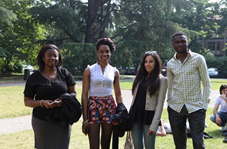
Schools and universities offer an important opportunity for young refugees, representing a fundamental step in their path of social inclusion. Only 3% of refugees globally, according to UNHCR, the UNHCR, of the United Nations Refugee Agency, have access to higher education, compared to an average of 37% globally.
In response to these challenges, which are strong in the sensitivity and commitment shown on this front by the Italian Universities, the UNHCR has proposed to them a Manifesto of the Inclusive University, to promote the access of refugees to university education and promote social integration and active participation in academic life.
Universities and research institutes that sign up to the Manifesto recognise themselves in the following general principles and are committed to defending and disseminating them in their respective workplaces. 1. Equality and non-discrimination. 2. Welcome 3. Knowledge 4. Integration 5. Valuing Differences 6. Participation
Universities participating in the document are specifically committed to undertake or expand activities and programmes for refugee students, such as information and mentoring services, recognition of degrees obtained abroad, scholarships and incentives, and university corridors for the regular entry of refugee students residing in third countries.
This initiative is part of the commitments outlined by the Global Compact on Refugees, the document adopted by the United Nations General Assembly in December 2018 that addresses governments, civil society and even universities, asking for a contribution to promote support initiatives and integration paths for refugees.
The Alma Mater has long been committed and sensitive to the theme of Inclusion and has activated in particular two projects: Unibo for Refugees and UNICORE (University Corridors for Refugees) At the end of 2019 he signed the Manifesto of the Inclusive University together with 38 Italian universities.